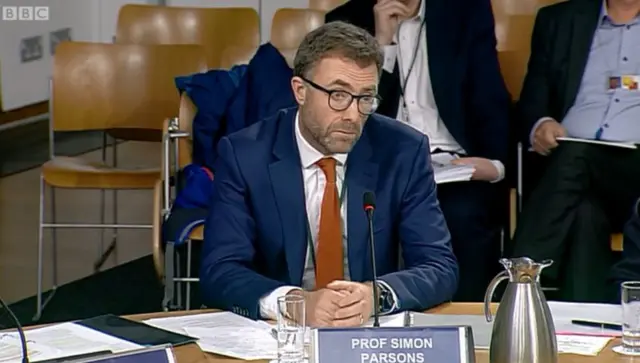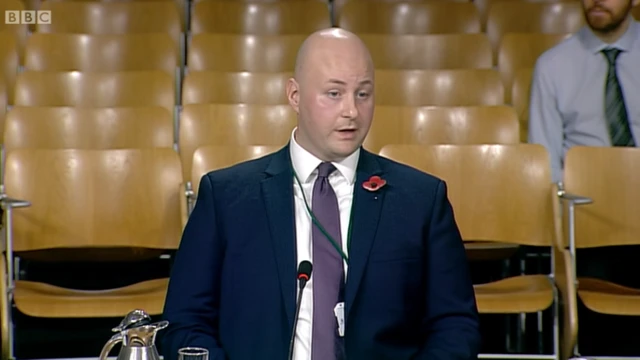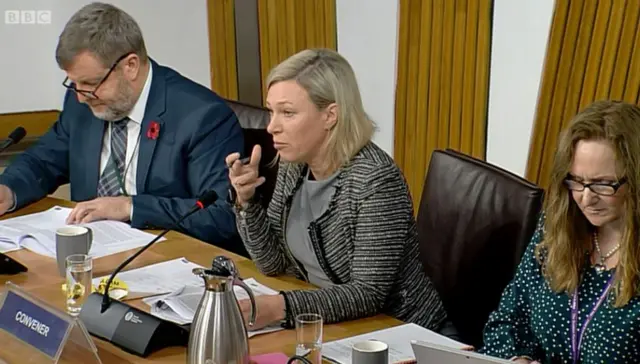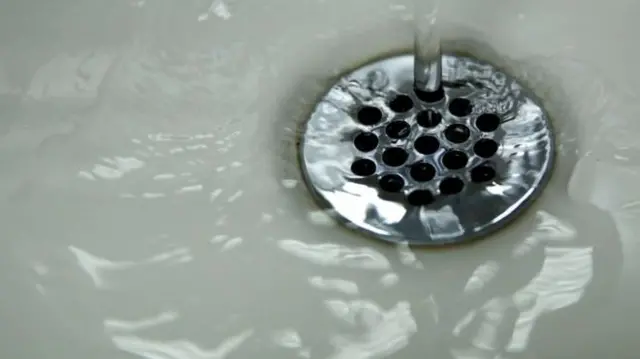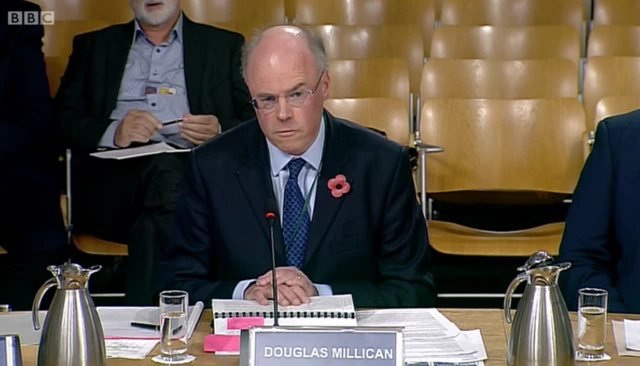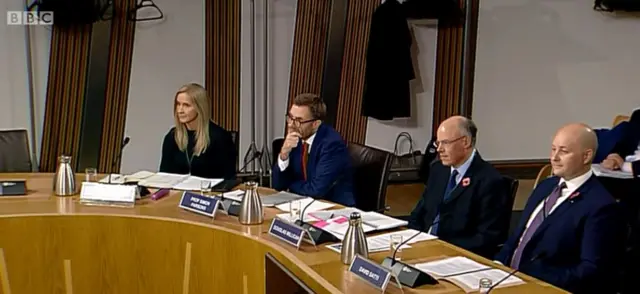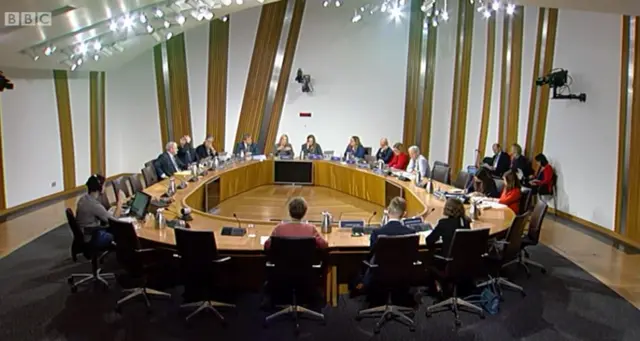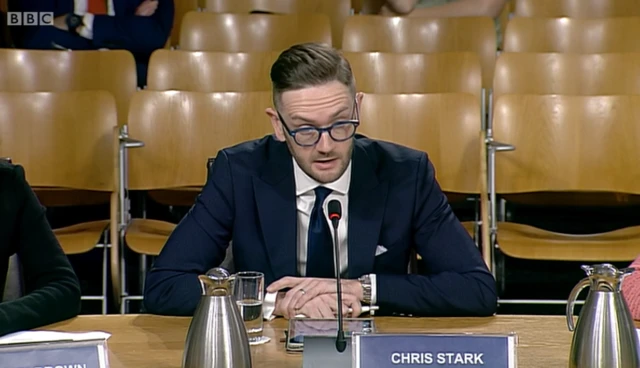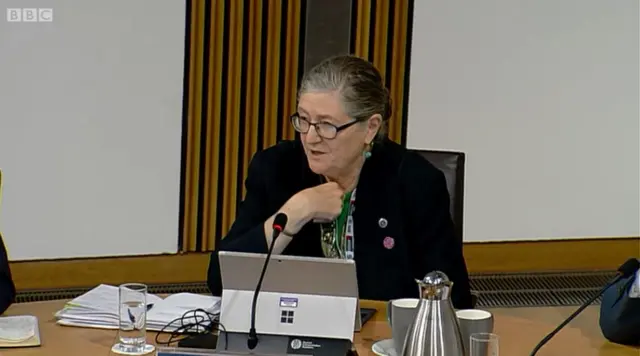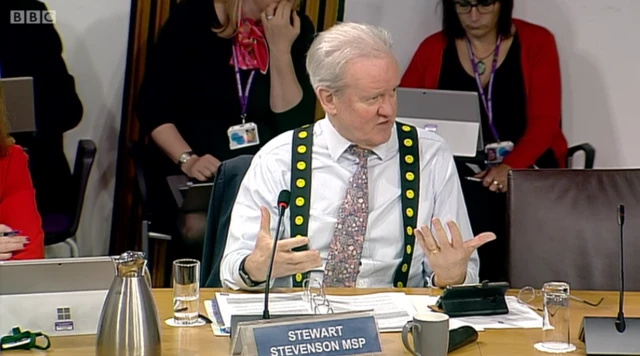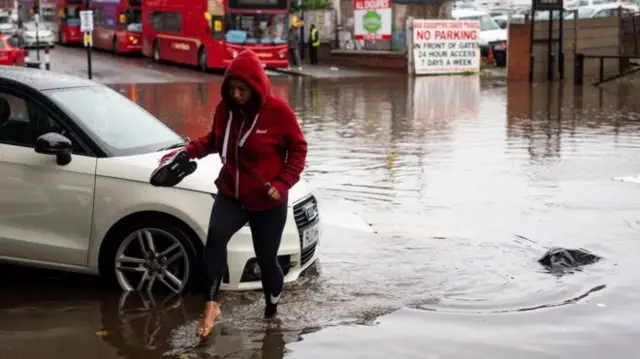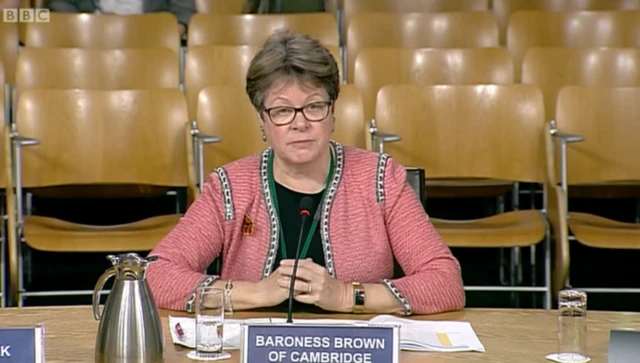WICS seeking to create a regulatory environment supportive of innovationpublished at 11:39 GMT 5 November 2019
Mr Ruskell suggests some changes to deal with climate change might appear economically inefficient at first, but raising costs the consumers in the short term could bring about something that can be mainstreamed in long term.
David Satti from WICS (Water Industry Commission for Scotland ) says efforts are being made to move away from six-yearly list of projects towards a more dynamic and transparent processes.
There will be occasions where Scottish Water will want to pilot projects which might not be successful, but this is the right thing to do, he adds.
We want to create a regulatory environment that allows for more dynamic scrutiny of projects to support innovation, Mr Satti tells the committee.
